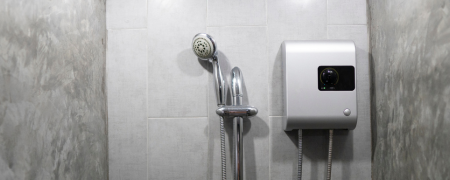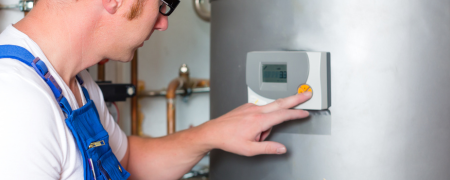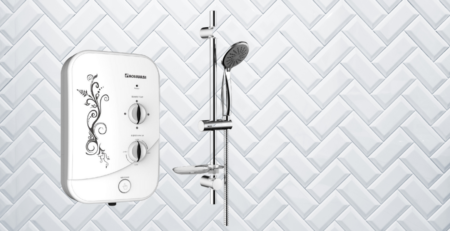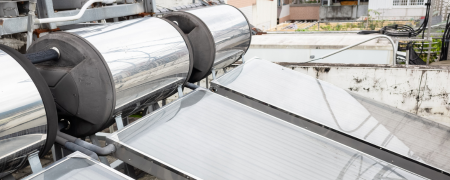Environmental Impact: How Electric Water Heaters Contribute to Green Living
How Electric Water Heaters Contribute to Green Living As the world embraces sustainability and green living practices, the choice of household appliances becomes increasingly significant. Electric water heaters, often a vital component of daily life, have evolved to align with eco-friendly principles. This guide explores how electric water heaters contribute to green living by focusing on energy efficiency, reduced emissions, and overall environmental impact.
**1. *Energy Efficiency for Reduced Carbon Footprint*
One of the primary ways electric water heaters contribute to green living is through enhanced energy efficiency. Modern models are designed to convert electricity into heat with minimal waste, resulting in lower energy consumption. Improved insulation, advanced heating elements, and smart technologies ensure that more of the energy input is used to heat water, reducing the overall carbon footprint associated with water heating.
2. Integration of Heat Pump Technology
Some electric water heaters incorporate heat pump technology, a green innovation that extracts heat from the surrounding air to warm the water. This process is inherently energy-efficient, as it utilizes existing ambient heat rather than relying solely on electricity to generate warmth. Heat pump water heaters contribute to green living by significantly lowering energy consumption and, consequently, greenhouse gas emissions.
3. Reduced Standby Heat Losses with Tankless Models
Tankless electric water heaters, known for their on-demand hot water supply, eliminate standby heat losses associated with traditional tank-based models. In tankless systems, water is heated only when needed, minimizing energy wastage when hot water is not in use. This feature contributes to green living by optimizing energy efficiency and reducing the overall environmental impact of water heating.
4. Sustainable Materials in Construction
Manufacturers are increasingly using sustainable materials in the construction of electric water heaters. From recycled steel components to eco-friendly insulation materials, these choices contribute to a more sustainable production process. By adopting materials with lower environmental impact, manufacturers align with green living principles and promote the responsible use of resources.
5. Smart Controls for Optimal Energy Management
Electric water heaters equipped with smart controls empower users to optimize energy management. Features such as programmable timers, remote monitoring, and adaptive learning algorithms enable users to schedule water heating during off-peak hours, when electricity is often more abundant and affordable. Smart controls contribute to green living by promoting efficient energy use and reducing the demand during peak times.
6. Eco-Friendly Practices in Manufacturing
Manufacturers are adopting eco-friendly practices in the production of electric water heaters. From energy-efficient manufacturing processes to waste reduction initiatives, these practices aim to minimize the environmental impact of bringing these appliances to market. Green manufacturing aligns with the broader goal of promoting sustainability throughout the entire life cycle of electric water heaters.
7. Longevity and Durability for Reduced Waste
The longevity and durability of modern electric water heaters contribute to green living by reducing the frequency of replacements. Long-lasting appliances result in fewer discarded units, minimizing the environmental impact associated with manufacturing, transporting, and disposing of appliances. Investing in durable water heaters aligns with sustainable practices and reduces the overall waste generated.
8. Regular Maintenance for Efficiency and Longevity
Encouraging users to perform regular maintenance on their electric water heaters is another eco-friendly aspect. Routine tasks such as flushing the tank, checking and replacing sacrificial anodes, and addressing any issues promptly contribute to efficient operation and prolonged lifespan. Well-maintained water heaters operate more efficiently, minimizing the need for premature replacements and associated environmental impact.
9. Utilization of Renewable Energy Sources
Homeowners keen on green living can further enhance the environmental impact of electric water heaters by powering them with renewable energy sources. Solar panels, wind turbines, or other renewable energy systems can be integrated into the home’s power supply, ensuring that the electricity used to heat water comes from sustainable sources, reducing reliance on non-renewable energy.
10. Contribution to Green Building Certifications
Electric water heaters that meet energy efficiency and eco-friendly criteria contribute to green building certifications. These certifications, such as ENERGY STAR, signify adherence to stringent environmental standards. Choosing water heaters with such certifications supports green living initiatives, as they align with broader efforts to promote sustainable practices in residential and commercial buildings.
Conclusion
Electric water heaters have evolved to become allies in the pursuit of green living. From energy-efficient designs and the integration of green technologies to sustainable manufacturing practices, these appliances contribute to environmental conservation. By choosing electric water heaters with a focus on energy efficiency, longevity, and eco-friendly features, consumers can actively participate in sustainable living practices and reduce their overall environmental footprint.
Get Access Now
Ready to explore electric water heaters that contribute to green living? Visit for insights, comparisons, and expert recommendations on eco-friendly water heaters. Discover models that align with your commitment to sustainability, ensuring a green and energy-efficient approach to water heating in your home.





Leave a Reply